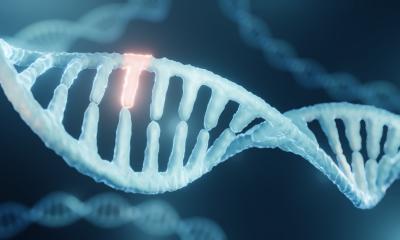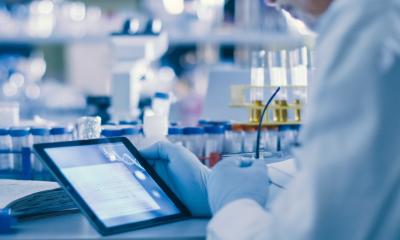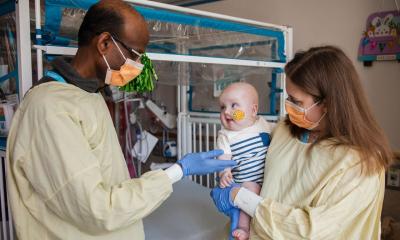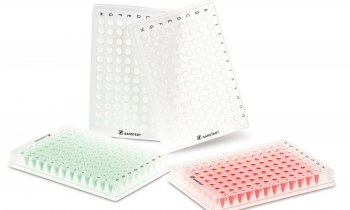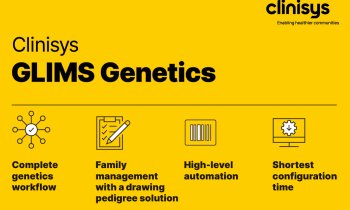Oocyte modification
USA - Oocyte modification to eliminate inherited mitochondrial defects in a human embryo was the subject of a globally scrutinised Food and Drug Administration (FDA) hearing held in February.

This coincided with the opening on 27 February of a three-month public comment period by the UK Department of Health on draft legislation that would legalise this research in the United Kingdom.
One type of oocyte modification, in which an oocyte that carries a mitochondrial disease from the mother is ‘repaired’ yet still carries the other genetic information from the original mother and father – has been colloquially called ‘three-parent’ in vitro fertilisation (IVF).
This is a process in which the nuclear genome of a woman who carries mutations in her mitochondrial DNA (not located in the nucleus, but rather in the cytoplasm) is inserted into a donor egg from a healthy woman whose nucleus has been removed but which carries normal mitochondrial DNA in the cytoplasm.
It is then fertilised with sperm from the father. The defective mitochondria, which float outside the nucleus in the egg’s cytoplasm, are left behind. The fertilised human embryo would then be placed inside the mother’s uterus and a child would be born with all of the characteristics of its parents but free of mitochondrial defects.
Inherited mitochondrial defects, which occur in one in every 5,000 births, are devastating. Mitochondrial diseases usually affect tissues that are highly dependent on energy, such as the brain, heart, and muscles. Severe clinical problems include neurological damage, heart failure, or blindness. Premature death before adulthood is common.
Shoukhrat Mitalipov, a senior scientist in the Division of Reproductive & Developmental Sciences of the Oregon National Primate Research Centre at Oregon Health and Science University in Beaverton, developed a means of performing oocyte modification on the eggs of primates and eliminating mitochondrial DNA mutations in the offspring. After conducting successful preclinical trials with these laboratory primates, he contacted the FDA to ask what would be required to receive authorisation for a clinical trial in humans.
That is why the hearings were held. Dr Evan Y Snyder MD FAAP, Professor and Director of the Centre for Stem Cells and Regenerative Medicine at Sanford-Burnham Medical Research Institute, La Jolla, Professor in the Department of Paediatrics at University of California-San Diego, and chair of the Federal Drugs Administration Cellular, Tissue, and Gene Therapies Advisory Committee told European Hospital that the FDA had not received such a request before.
The FDA then instructed the committee to hold public hearings to consider scientific, technologic, and clinical issues relating to genetic modification of human eggs and embryos.
Specific topics for discussion:
• the animal and in vitro studies that would be necessary to support the safety and prospect of benefit of mitochondrial
manipulation technologies before human clinical trials could be initiated;
• design considerations, controls, and benchmarks for such clinical trials if and when they were ever to be initiated, and
• the risks for study participants and any children born from the studies.
The hearing was not intended to address issues of ethics, public health, or public policy. However, the world’s media and individuals and organisations concerned about the ethics of human genetic modification immediately focused on the possibility of FDA approval of ‘designer babies’.
‘What the committee determined was that the technical advances that Dr Mitalipov made were an impressive tour de force. His research shows much promise in the ability to eliminate the risk of mitochondrial disease in children borne by a woman with mitochondrial gene mutations. Mitochondrial diseases are horrible and incurable,’ Dr Snyder said.
‘However, we did not believe that the preclinical data-to-date supported the initiation of clinical trials at this time. We formulated the content and structure of what we believed would constitute the most informative and rigorous preclinical studies, as well as what would constitute the most reassuring and rigorous clinical studies – but, all of this, at present, is hypothetical. My colleagues and I on the Advisory Committee felt, by and large, that there was a lot more pre-clinical research needed before a clinical study should be considered by the FDA.’
Dr Snyder estimates that this will take at least another five years of work. The committee had too many unanswered questions, and the majority of its members did not feel that the laboratory monkeys in the preclinical research had been followed long enough, through enough generations. ‘There were too many unknowns. What organs would be affected? Could gene manipulations be transferred across generations? Should the treatments, therefore, be limited only to male offspring in preclinical and clinical trials, or would critical knowledge, including benefits, be obtained from also examining female offspring? Would there be unintended consequences on brain and other organ development. Would unknown health problems materialise as the primates aged?’ Although very impressed by Dr Mitalipov’s research, the recommendation to the FDA was for much more pre-clinical research.
At that point, will the FDA need to tackle the question of ethics and public policy? Probably so. Will the hearings have a positive impact on research in the United Kingdom? Current regulations set by the Human Fertilisation and Embryology Act (HFEA) 1990 only permit eggs and embryos that have not had their nuclear or mitochondrial DNA altered to be used for treatment. The act does allow for additional regulations to be passed by Parliament that would allow DNA modifications of an egg or embryo to prevent the transmission of serious mitochondrial diseases.
The public comment period about draft legislation is an important step for the UK’s Department of Health to take.
Dr Doug Turnbull, is a professor of neurology and director of a £5.8m centre for mitochondrial research established by the Wellcome Trust in January 2012. He is Professor of Reproductive Biology. Dr Mary Herbert heads the research team that has been developing pioneering IVF techniques using abnormally fertilised zygotes, which they believe are viable options for humans. They are hopeful that members of Parliament will pass the legislation needed to continue their research.
The UK’s Nuffield Council on Bioethics June 2012 report recommended that ‘if these novel techniques are adequately proven to be acceptably safe and effective treatments, it would be ethical for families to use them’.Families with children with these horrific defects undoubtedly concur.
Profile:
Dr Evan Y Snyder is a professor at the Sanford-Burnham Medical Research Institute in La Jolla, California, where he directs the Centre for Stem Cell Biology & Regenerative Medicine as well as the institute’s Stem Cell Research Centre and Core Facility. Additionally, he is a professor and faculty physician at the University of California-San Diego’s Department of Paediatrics and its Biomedical Sciences Graduate Programme. Dr Snyder chairs the Cellular, Tissue and Gene Therapies Advisory Committee of the USA’s Food and Drug Administration. He has also authored/co-authored over 170 articles published in peer-reviewed journals.
24.06.2014



